Brief history of Ankara-Moscow relations and possible areas of future cooperation.
Brief history of Ankara-Moscow relations and possible areas of future cooperation.
By Onur Sinan Güzaltan
United World International expert, Political Scientist Onur Sinan Güzaltan held a conference at Voronezh Technical University in Russia on the geopolitical evaluation of Türkiye-Russia relations.
We are sharing the English translation of the shortened and important points of Güzaltan’s speech at the conference with our valued readers.
Türkiye and Russia are two big countries of Eurasia… Two neighbors…
The relations between Türkiye and Russia are a very broad topic. There is much to say…
I will try to evaluate the recent period of relations between Türkiye and Russia in the light of geopolitical principles. History is one of the keys we have to understanding today and the future…In order to understand today, it is useful to briefly touch on the history of Türkiye-Russia relations.
History is one of the keys we have to understanding today and the future…
There are historical relations between Turks and Russians dating back centuries.
A brief historical overview of Turkish-Russian relations
Eurasia has been and continues to be the home of Turks and Russians.
In this geography, Turkish and Russian peoples lived together during the period of different empires. Scythians, Khazars and Golden Horde are some of the empires where Turks and Russians lived together…
The fact that there are more than 3000 similar words between Turkish and Russian is proof of strong cultural ties between the two peoples.
During the Ottoman and Russian Empires, competition between Turks and Russians came to the forefront. Competition brought wars in its wake and the two great empires faced each other many times.
Eurasia, the Caucasus, the Black Sea, Eastern Europe and the Balkans were areas of competition between Turks and Russians.
The 20th century brought about major changes not only in the world but also in Turkish-Russian relations.
The Ottoman and Romanov Dynasties collapsed at close dates to each other.
Revolutions took place one after another in Türkiye and Russia. The Bolsheviks came to power in Russia.
In the same period, a War of Independence was fought in Türkiye under the leadership of Mustafa Kemal against Western imperialism and a modern Republic was established afterwards.
During this period, there was a strong interaction between the Turkish and Soviet Revolutions.
The Soviet Union supported the Turkish War of Independence against Western imperialism. The Soviet government of the period provided economic and military aid to Türkiye.
The two great leaders of the period, Mustafa Kemal and Lenin, cooperated with the West and built a barrier against Western imperialism in Eurasia. Turkish and Soviet cooperation would also be an example for the peoples of Asia and Africa in the future.
It would not be wrong to say that the cooperation between Türkiye and the Soviets during this period changed the world’s center of power.
The newly established Republic of Türkiye attached great importance to friendship with the Soviets during this period.
Without further ado, let me give a simple example that illustrates this importance.
Just as there is Red Square in the center of Moscow, there is also Takim Square in the center of Istanbul…
In the very center of Taksim Square is a statue of Mustafa Kemal Atatürk and his comrades-in-arms.
In this statue, Atatürk is accompanied by Mikhail Frunze, the Soviet representative in Ankara at the time, and Soviet general Kliment Voroshilov, who also supported the Turkish War of Independence.
This statue is an important symbol of the friendship between Türkiye and the Soviet Union.
It shows the importance that Türkiye gave to friendship with the Soviets at that time and declares it to the world.
Mustafa Kemal Atatürk willed the next government to continue its friendship with the Soviet Union.
However, after Atatürk’s death, his will was not followed.
The powers that came to power after Atatürk followed a line that distanced themselves from the Soviet Union and approached the West.
Türkiye remained neutral for a long time in World War II and only declared war on Nazi Germany towards the end of the war.
After the war, the political line leaning towards the West continued and Türkiye became a member of NATO in 1952.
Türkiye and the Soviet Union were in two different camps during the Cold War and relations were limited.
During this period, the influence of the United States (US) and NATO within Türkiye increased. NATO is not only a military union but also has a political and cultural influence. We witnessed this fact in Türkiye. The US’s anti-Soviet propaganda became very strong in Türkiye during this period.
After the collapse of the Soviet Union and the end of the Cold War, relations between Türkiye and the Russian Federation were revived. Mutual steps were taken in the economic and cultural fields. However, of course, the mutual reservations and uneasiness brought about by the Cold War period continued.
The 2000s and the new era in Türkiye-Russia relations
A new era began in the 2000s in terms of relations between Türkiye and Russia.
In 2000, Vladimir Putin came to power in Russia and two years later in 2002, Recep Tayyip Erdoğan came to power in Türkiye.
In the first period of his rule, Erdoğan, just like previous governments, pursued a policy compatible with the US and Europe. However, he did not completely close the doors to Russia. During this period, relations developed on an economic basis.
At this point, I would like to mention the Arab Spring process by opening a parenthesis.
The ruptures experienced during this process are important in terms of understanding the new and negative situation that will emerge in relations between Türkiye and the US and therefore the positive changes that will occur in Türkiye-Russia relations.
Türkiye and the US supported movements originating from the Muslim Brotherhood in the Middle East and North Africa during the Arab Spring.
Opposition groups were supported in the region, especially in Tunisia, Syria, Libya and Egypt.
In this context, the developments in Egypt, which is historically considered the heart of North Africa and the Middle East, are important in terms of understanding the process in the entire region.
In 2012, the Muslim Brotherhood came to power in Egypt. During this process, Türkiye and the US gave full support to the Muslim Brotherhood.
However, the Muslim Brotherhood government in Cairo lasted only one year and was overthrown by a military intervention following a popular movement in 2013. The defeat in Egypt marked the beginning of the decline of the Muslim Brotherhood in the entire region.
Following the overthrow and withdrawal of the Muslim Brotherhood, the US changed its approach to the region. Washington approached the process pragmatically and sought to develop relations with the new governments in the region, especially in Egypt. Syria was the only exception in this regard, and the US continued its intense support for opposition groups.
In Türkiye, the Erdoğan administration continued its support for the Muslim Brotherhood instead of changing its policies in line with the new era.
Erdoğan has long refused to establish relations with the Sisi administration in Egypt. This choice has had many repercussions in international politics.
The new situation that emerged in the Middle East and North Africa has limited the alliance between Türkiye and the US in the region.
On the other hand, throughout this process and afterwards, the US continued to support the separatist PKK terrorist organization and the radical religious FETÖ terrorist organization, which were active against Türkiye.
FETÖ leader Fetullah Gülen lived in the US for many years and controlled by the American intelligence agency.
2016: The year when Türkiye-Russia relations began to make progress
2016 was a turning point in Türkiye-US relations.
In 2016, the US-backed FETÖ terrorist organization attempted a military coup.
The US supported the coup attempt.
The Turkish State, government, army and people suppressed this uprising.
Russia supported the Turkish State against the military coup attempt during this process.
In order to balance the pressure coming from the US after the coup attempt, the Republic of Türkiye turned to deepening relations with Russia.
During this period, new cooperation steps were taken between Türkiye and Russia in many areas, especially in economy, politics, security, energy, tourism and culture.
With the new period, the volume of mutual trade between the two countries increased.
Türkiye, Russia and Iran decided to develop a joint initiative for the solution of the civil war in Syria and the Astana Platform was established.
The Turkish and Russian armies started joint patrols in Syria.
Studies on the nuclear power plant project to be built by Russia in southern Türkiye have been accelerated. Today, many Turkish students are receiving education in Russia on nuclear energy to work in this plant.
Also, during this period, Türkiye purchased s400 air defense systems from Russia. This initiative caused a major crisis between Türkiye and the US/NATO.
Apart from these areas, some steps have been taken towards cooperation between Türkiye and Russia in North Africa and Africa in general.
2022: Russia-Ukraine crisis and Türkiye-Russia relations
2022 has been an important year for Türkiye-Russia relations, just like 2016. We can also say that it was a year in which mutual trust in Türkiye-Russia relations was tested.
In 2022, Russia launched a special military operation in Ukraine.
After the military operation began, Western countries began to impose harsh economic, political, diplomatic and cultural sanctions on Russia.
Despite being a NATO member, Türkiye refused to comply with the sanctions and economic relations between Türkiye and Russia continued.
In addition, based on the Montreux Convention of 1936, Türkiye closed the Straits to the passage of warships and prevented the passage of warships belonging to Western countries to the Black Sea.
During this period, Türkiye-Russia relations continued despite the pressure and threats of Western countries. The government in Türkiye followed a delicate “balancing policy” between the West and Russia.
Türkiye has continued on its path as part of the NATO alliance but has maintained its relations with its neighbor Russia.
We have thus briefly touched upon the recent period of relations between Türkiye and Russia.
Opportunities for cooperation between Türkiye and Russia in 7 different regions
Now we can evaluate the relations between Türkiye and Russia from a geopolitical perspective and make a projection for the future.
We can talk about 7 different regions where Türkiye and Russia are actively pursuing politics at the same time; The Middle East, North Africa, the Eastern Mediterranean, the Black Sea, the Caucasus, Central Asia and the Balkans.
Now I will analyze what kind of cooperation Türkiye and Russia can have in these regions.
Before examining these regions, it would be useful to remind you that joint steps between Türkiye and Russia can only be taken if there is mutual political will.
Let’s start with the Middle East and North Africa; Türkiye and Russia can develop joint initiatives regarding the ongoing crises in Syria, Libya and Palestine in this region.
At the end of last year, the Bashar Assad government in Syria was overthrown. There is now a new government in Syria. However, political and military instability continues. The future of the country is still questionable and there is a risk of disintegration.
In addition to its military presence in Syria, Türkiye also has good relations with the new government. Russia is also establishing relations with the new government in Syria and is also maintaining its military bases in the country. In short, Türkiye and Russia continue to be active in Syria. The two countries can take joint steps to ensure stability in the region and rebuild the country.
There is a similar situation in Libya. Libya has been politically fragmented after Muammar Gaddafi was killed by NATO-backed forces. Türkiye maintains good relations with the Government of National Accord, which is active in the western part of Libya. On the other hand, there are good relations between Russia and General Haftar’s forces, which are active in the eastern part of Libya. General Haftar recently attended the May 9 ceremonies in Moscow. Türkiye and Russia can take joint steps to achieve a national consensus and ensure stability in Libya by using their influence on these groups.
Palestine is another topic between Türkiye and Russia. Türkiye and Russia can take joint steps to end the Israeli occupation in Palestine.Türkiye and Russia continue to have influence over groups in Palestine. Ankara and Moscow may put forward a joint initiative to reach an agreement between these groups.On the other hand, Russia may take some steps through its relations with Israel.If Türkiye and Russia put forward a joint initiative on the Palestine issue, regional countries such as Iran, Egypt and even Saudi Arabia may also support this initiative.
In short, a possible cooperation between Türkiye and Russia in North Africa and the Middle East will create an alternative power center in the region and limit the intervention of Western countries in the region.
Cooperation in the Eastern Mediterranean; There are rich gas fields in the Eastern Mediterranean. The US and Europe want to control this region through Greece and Israel. As a first step, Türkiye, Egypt, Syria, Lebanon and Palestine (which has a coastline on the Eastern Mediterranean via Gaza) may sign an agreement among themselves on the determination of maritime borders in the Eastern Mediterranean. The second step will be the extraction and transportation of gas fields in this region. Russia has experience in gas fields. It can share know-how and technology with regional countries regarding the extraction of gas fields in the Eastern Mediterranean.
The Caucasus is another region where Türkiye and Russia follow active politics. We have witnessed many times that the winners of conflicts in the Caucasus are Western countries.
Türkiye and Russia can put forward a common plan for the solution of the problems in this region, especially the Azerbaijan-Armenia problem. In this way, the winners of the stability to be achieved in the region will be both the regional countries and Türkiye and Russia.
Central Asia is another area where Türkiye and Russia continue to have an influence.
Türkiye has ethnic, cultural and historical ties with the Central Asian peoples and states.
Turks and Central Asian peoples speak the same language. This is a very important and valuable bond. On the other hand, Russia also has deep ties with this region. Until recently, you were living together and speaking the same language within the same state, the Soviet Union. If Türkiye and Russia choose cooperation instead of competition in this region, many opportunities will arise.
As for the Black Sea; The Black Sea connects Türkiye and Russia.The security of the Black Sea is of great importance to Türkiye and Russia.
At the beginning of the crisis in Ukraine, Türkiye did not allow Western warships to enter the Black Sea. In this way, possible provocations in the region were prevented. Cooperation between Türkiye and Russia in the Black Sea is currently ongoing. However, this cooperation can be expanded. New projects can be developed in the fields of logistics and transportation. In this way, trade opportunities will also increase. On the other hand, the Black Sea is also suitable for joint tourism projects.
And finally, I will touch on the Balkans; Türkiye has close and historical ties with the Muslim peoples living in the Balkans. The same situation applies to the Orthodox people living in the region from Russia’s perspective. Türkiye and Russia can focus on joint projects that will re-establish rapprochement and brotherhood between these ethnic and religious groups. In this way, new tragedies similar to the collapse of Yugoslavia will be prevented.
Mutual political will is essential for cooperation
In conclusion; If Türkiye and Russia can approach the regions in question through the lens of cooperation instead of mutual competition, new and great opportunities will emerge.
The influence of the West in these regions will be reduced.
Cooperation will create new economic opportunities.
Stability will be achieved.
Turkish-Russian cooperation will also be in favor of the people and states living in this region. A new power center will emerge from North Africa to the Balkans and Central Asia. This cooperation will also accelerate the ongoing trend towards multipolarity worldwide. At this point, I would like to add that BRICS can be an important platform for the development of Türkiye-Russia cooperation.
However, as I have stated before, taking these steps depends on political will. It is not possible to achieve these without political will and program.
These steps can only be taken with a common political will.
I hope that cooperation between our countries will continue and develop.
Thank you for your time and interest.







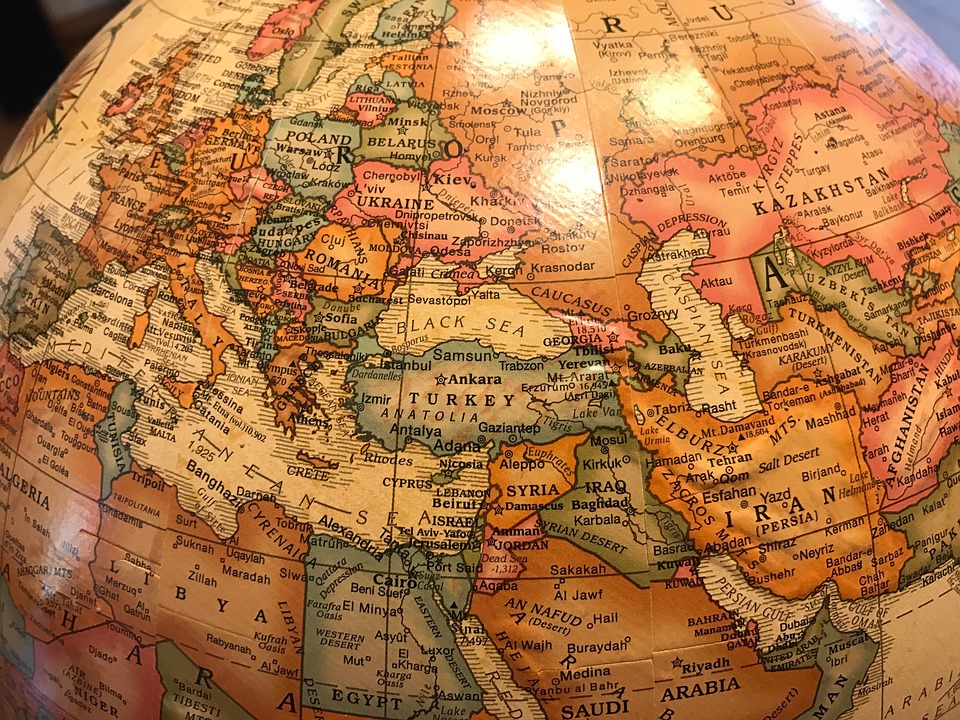
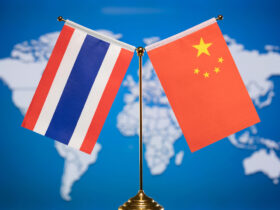
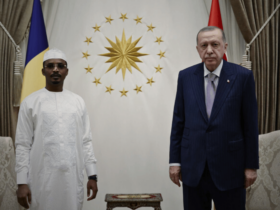
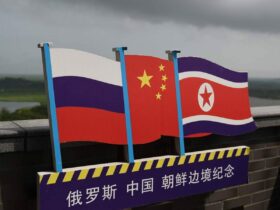



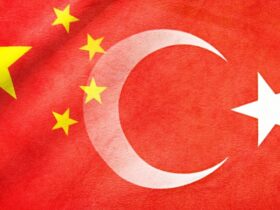
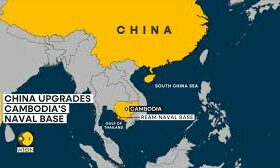

Leave a Reply